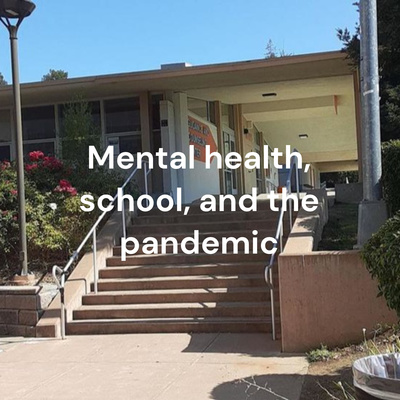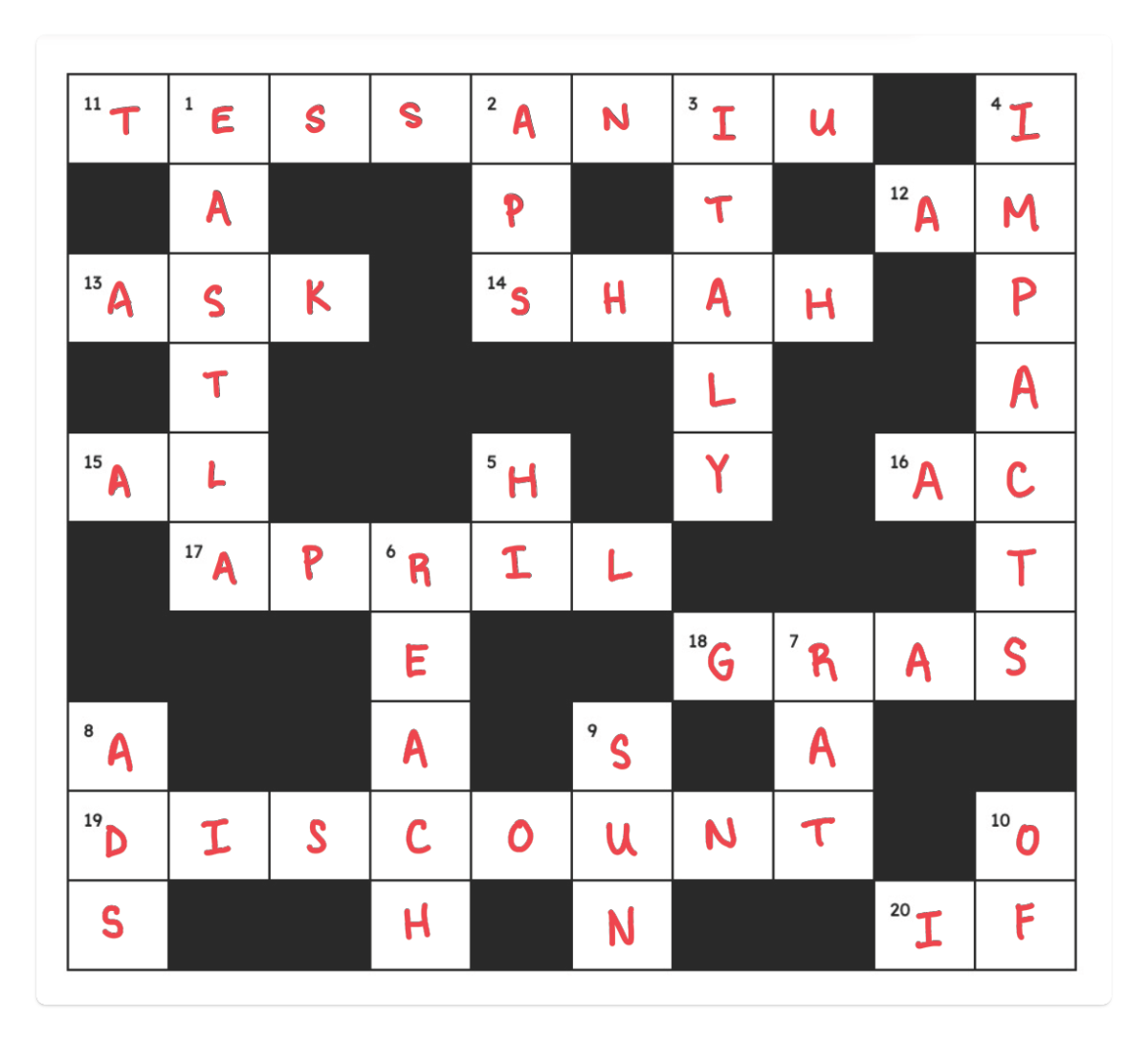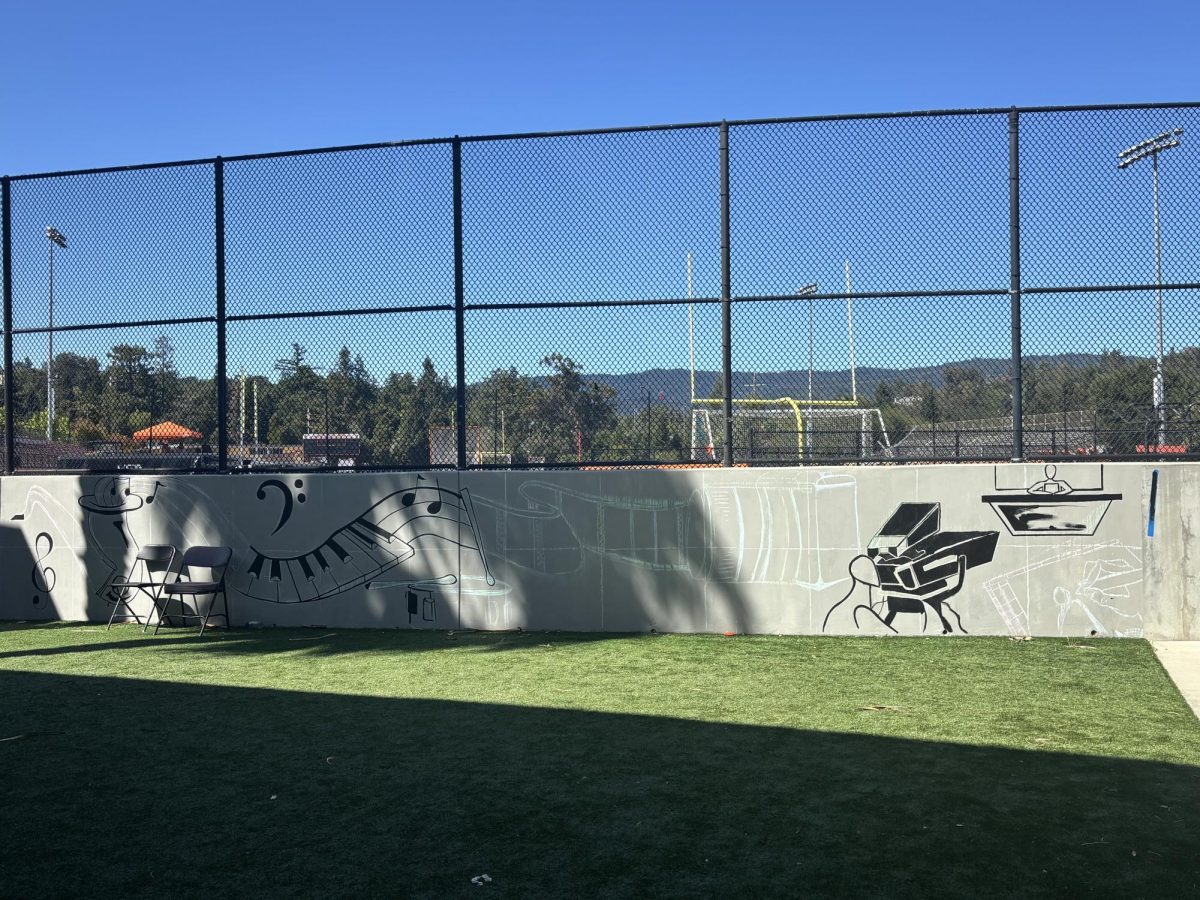
Intro: I’m Jessica Lin and I’m Zahra Roberts, and this is The Woodside Paw Print.
Narrator 1 (ZR): Warning, in this podcast, we may cover serious issues regarding mental health. Please be advised when listening. If you are in crisis or you think you may have an emergency, call your doctor or 911 immediately. If you’re having suicidal thoughts, call 1-800-273-TALK (8255) to talk to a skilled, trained counselor at a crisis center in your area at any time (National Suicide Prevention Lifeline). If you are located outside the United States, call your local emergency line immediately.
Narrator 2 (JL): Those that we interviewed for this podcast are to remain anonymous.
Narrator 1 (ZR): Our podcast today is focusing on how students’ mental health has been affected by the pandemic, school, friends, and other occurrences.
Narrator 2 (JL): On March 13, Woodside’s staff and students’ world was changed, the beginning of lockdown of what seemingly was going to be a long spring break turned into months and months of isolation. The pandemic has not only affected businesses and families who lost loved ones — the isolation has left many feeling bereft, robbed, and alone.
Narrator 1 (ZR): Our podcast today is focusing on how students’ mental health has been affected by the pandemic, school, friends, and other occurrences.
Narrator 1 (ZR): Relationships with teachers and classmates are hard but many have realized that their relationships with other people have differed.
Interviewee 1: I’ve outgrown a lot of my middle school friends because, like, that transition period where friendships tend to get deeper, and you feel, like, more of a connection to your friends, that . . . timeframe was kind of run over by the pandemic so we couldn’t grow together so we all, like, grew separately and then that led to us growing apart because, like, a lot of my friends feel like strangers now because we didn’t have that ability to grow together.
Narrator 2 (JL): Many students struggle with school, stress, and their home lives behind closed doors with little to no outside support.
Interviewee 1: My parents don’t really think that mental health is, like, a very severe thing. They’re just like, they kind of brushed it off as like, “Oh, you’re just, like, tired,” or “Oh, you’re just being lazy.” So, like, home life isn’t very great because of that. . . . For me personally, I’m very invested in art and music. So, having that idea of a future where I can pursue those kinds of things, keeps me, like, keeps me interested enough that I like to keep doing it even though, like, I find it difficult to get out of bed, but everything else like schoolwork and stuff like that kind of goes down the drain.
Narrator 1 (ZR): One interviewee even stated she is medically allowed not to attend her Zoom classes due to her mental health.
Interviewee 1: I think that depression feels like it’s just, like, it’s like a sponge that just soaks everything out of you, and then you’re just like, left a little hollow shell that walks around. And it’s like there’s a tiredness that just aches to your bones. And, like, you even notice, like, even I’m like, I noticed myself walking around the house slowly, like, talking slowly because I’m so tired. And like, I hate everyone. I hate everything, which is not a lot of fun. And yeah, I’m just like, you’re just tired all the time you’re sad all the time if you’re not sad, you’re either angry, frustrated, or numb, those that like, like the good old trio. And I think that it’s important because mental health affects so many people. And there are so many different conditions that aren’t very well understood, and like it’s an illness, it impairs people from being able to do, like go on with their daily lives, and like it cripples people, and people need to understand that, so that people don’t have to like force themselves to keep living like a normal life, when they’re, like, mentally and physically not able to.
Narrator 1 (ZR): Due to stay-at-home orders to minimize the spread, students began learning at home. Their classes were held on Zoom, and assignments were posted on Canvas. Woodside students say the online classroom doesn’t feel the same.
Interviewee 3: We never really talk about, like, anything in class about, like, what we do outside of class. Which I would probably like to do. But you know, it’s, there’s just so much going on.
Narrator 2 (JL): Many students believe that the school does in fact care about the well-being of their students, but effectively reaching out and checking in with all of their students might be challenging on the teacher’s end.
Interviewee 4: It feels like some of my teachers are a lot more considerate. And definitely, I can sense the thoughtfulness. And I can tell when a teacher is genuinely like, really flexible with students and gives them time and is very understanding. And that shows that I think they get what we’re going through right now. And I can see through the way that my teachers are, you know, offering help reaching out to us and saying that, they understand how we’re feeling, and that if we want to talk to somebody that they’re there to talk to you. A couple of my teachers have done that. And they reiterate that in many classes, so that, you know, their students know that if we want to talk to an adult, it’s sort of a safe place for the students. Other aspects make me think that teachers are just trying to get us to push through, and they’re just trying to get us to keep learning as best we can. They’re not really taking into full consideration the different things that students might be going through right now. I think that they could be a little bit more, you know, thoughtful and understanding and really express that to the students. I think that a lot of students aren’t seeing that from teachers and teachers aren’t going above and beyond or they’re not doing enough to make sure that the students know 100 percent, that their teachers do care about their mental health, because a teacher may care and may understand what the students are going through.
Narrator 2 (JL): When teachers do reach out and find ways to engage with their students personally, many appreciate their efforts and sympathy.
Interviewee 3: My English teacher and, like, my physics teachers always email me about, like, my missing work. And it’s actually like, really, I found that really sweet because my a lot of my teachers last year didn’t do that at all. And this year, like, I feel like they just care way more for, like, the seniors too, because we don’t really have that much of a senior year.
Narrator 1 (ZR): Although Woodside offers counseling and other mental health resources, there are mixed feelings, one stating that they wouldn’t change a thing and rather promote it even more.
Interviewee 2: I think Woodside is really open with mental health and they have multiple outlets and resources for students who need help. And I don’t think they could really change anything. Maybe just being a little bit more added better at letting the kids know or being more frequent at letting them know about the resources that they have available to them.
Narrator 2 (JL): While another stated that there could be so much more things to offer.
Narrator 2 (JL): Woodside has numerous mental health, wellness, and academic resources made readily available for students. On top of that, students can even sign up to view the Mindful Monday and Wednesday Wellness newsletters.
Interviewee 2: Even though people might get tired of hearing the same thing all the time, I think it’s important to have people who advocate for mental health, because there’s a lot of people who struggle behind doors, and you don’t know what people go through in their everyday life, and you don’t know what people are like, when you’re not around. So, talking about mental health and outlets that are available and stuff can encourage somebody who’s scared to speak up or who’s scared to get help, get the help that they need. And with so many people who take their lives or who stress or who have mental issues or like that don’t have anyone there for them to help them through that, letting them know that it’s okay to talk about it that it’s okay to get help, will encourage them to do it.








